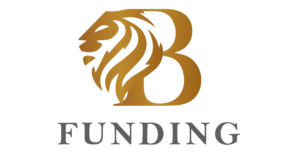If you’re a business owner in the Tar Heel State, you’ve come to the right place! Whether you’re starting a new venture or looking to expand your existing business, understanding the ins and outs of business loans in NC is crucial for your success.
Now, we know what you’re thinking: “Business loans? Ugh, they sound about as exciting as watching paint dry.” But fear not! We’re here to break it down for you in a way that won’t put you to sleep. So grab a sweet tea, kick back, and let’s dive into the fascinating world of financing your dreams.
In this comprehensive guide, we’ll explore the different types of business loans available, reveal the secrets of navigating the NC business loan landscape, and provide you with all the essential information you need to make informed decisions. From traditional bank loans to Small Business Administration (SBA) loans and everything in between, we’ve got you covered. So, let’s get started on your journey to financial success, y’all!
Overview of Business Loans:
When it comes to fueling growth, business loans are like the secret sauce that keeps the wheels turning. They provide entrepreneurs with the financial resources they need to kickstart their ventures, expand operations, hire talented employees, invest in new equipment, or seize exciting opportunities. In simple terms, business loans are a lifeline for businesses, allowing them to bridge the gap between their vision and the necessary capital.
Now, you might be wondering, “Why can’t businesses just rely on their own funds?” Well, that’s a valid point, but here’s the deal: Many businesses, especially startups or those undergoing rapid expansion, often face a cash flow crunch or lack sufficient capital to fund their ambitious plans. That’s where business loans come into play, providing a timely injection of funds to fuel growth, maintain stability, and propel success.
Different Types of Business Loans:
- Traditional Bank Loans: Ah, the classic choice! Traditional bank loans have been around since dinosaurs roamed the Earth (well, almost). These loans are offered by banks and require businesses to go through the application and approval process, which often involves providing collateral and a comprehensive assessment of creditworthiness. While bank loans offer stability and competitive interest rates, they can be a bit like navigating a maze of paperwork, strict eligibility criteria, and lengthy processing times.
- Small Business Administration (SBA) Loans: Picture a friendly helping hand guiding you through the loan maze—that’s the SBA! The Small Business Administration offers a variety of loan programs designed to support small businesses. SBA loans come with attractive terms, longer repayment periods, and lower down payment requirements. However, keep in mind that these loans involve a meticulous application process and may require a personal guarantee or collateral.
- Online Lenders: Online lenders are the cool kids on the block, providing a streamlined and convenient loan application process. They cater to businesses of all sizes, offering flexible loan options, quick approvals, and sometimes more lenient eligibility criteria. However, it’s important to note that online lenders may have higher interest rates compared to traditional banks, so be sure to read the fine print.
Pros and Cons of Each Loan Type:
Each type of business loan has its own set of advantages and drawbacks, so let’s break them down:
Traditional bank loans offer stability, competitive interest rates, and the prestige of working with established financial institutions. However, the strict eligibility requirements, lengthy approval process, and potential need for collateral can be a hurdle for some businesses.
SBA loans bring attractive terms, longer repayment periods, and lower down payment requirements. Nonetheless, the application process can be time-consuming, and the need for personal guarantees or collateral may raise concerns for certain business owners.
Online lenders offer convenience, quick approvals, and flexibility. They can be a lifeline for businesses with urgent funding needs or those struggling to meet the stringent criteria of traditional lenders. However, it’s essential to carefully evaluate the interest rates, fees, and terms to ensure they align with your long-term financial goals.
Understanding the NC Business Loan Landscape:
The business loan landscape in North Carolina (NC) has its own distinct flavor, reflecting the state’s vibrant economy and entrepreneurial spirit. NC boasts a diverse range of industries, including technology, agriculture, manufacturing, and tourism, which influences the availability and nature of business loans.
To ensure fair and transparent lending practices, NC has specific regulations and laws governing business loans. Understanding these regulations is crucial to protect your interests as a business owner. Additionally, lending practices can vary among financial institutions, so it’s essential to explore different options and compare terms, interest rates, and fees.
Local Resources and Organizations:
NC is home to an array of local resources and organizations dedicated to supporting businesses in their quest for financing. From regional economic development agencies to local small business associations, these entities can provide valuable guidance, connections, and resources to help you find suitable business loans in NC. It’s worth tapping into these networks to leverage their expertise and increase your chances of securing the right loan for your business.
Eligibility Criteria and Documentation:
Securing a business loan in North Carolina (NC) typically requires meeting certain eligibility criteria. While specific requirements may vary among lenders and loan types, here are some common factors to consider:
- Creditworthiness: Lenders assess your credit history and credit score to gauge your ability to repay the loan. A strong credit profile increases your chances of approval.
- Business Age and Stability: Lenders often prefer established businesses with a track record of stability and consistent revenue. Startups may find it more challenging to qualify for certain loans.
- Revenue and Cash Flow: Lenders consider your business’s financial health, including revenue, cash flow, and profitability. They want assurance that you can make timely loan payments.
- Collateral: Some loans, particularly traditional bank loans, may require collateral to secure the loan. Collateral can include assets such as real estate, equipment, or inventory.
Documentation and Paperwork Needed:
When applying for a business loan in NC, you’ll need to gather specific documentation to support your application. Here are some typical documents requested by lenders:
- A comprehensive business plan outlines your company’s goals, strategies, financial projections, and market analysis. It showcases your business’s potential for success.
- Lenders typically require financial statements such as income statements, balance sheets, and cash flow statements to assess your business’s financial health.
- Personal and business tax returns for the past few years demonstrate your income, expenses, and compliance with tax obligations.
- Providing recent bank statements offers insight into your business’s cash flow and transaction history.
- These may include business licenses, registrations, articles of incorporation, partnership agreements, and contracts.
Tips to Prepare and Improve Your Chances of Loan Approval:
Securing a business loan is not just about meeting the eligibility requirements; it’s also about presenting your business in the best possible light. Consider the following tips to enhance your chances of loan approval:
- Review your credit report, address any inaccuracies, and make efforts to improve your credit score before applying for a loan.
- Craft a well-structured, compelling business plan that showcases your industry knowledge, growth strategies, and financial projections. Highlight how the loan will be used to achieve your business goals.
- Connect with local banks, credit unions, and community organizations specializing in small business loans. Developing relationships with lenders can provide valuable insights and increase your chances of approval.
- Ensure your financial statements accurately reflect your business’s financial health. If needed, consult with an accountant or financial professional to ensure they are well-prepared and accurate.
- Gather all the necessary documentation and keep it organized for easy access during the loan application process. This demonstrates professionalism and preparedness to the lender.
Types of Business Loans in NC:
North Carolina offers a variety of business loan options tailored to meet different needs. Let’s dive into some popular choices:
Traditional Bank Loans:
Traditional bank loans are widely available in NC, offered by major banks, community banks, and credit unions. These loans often come with competitive interest rates and a range of repayment options. Terms can vary, typically ranging from short-term loans for immediate working capital needs to long-term loans for major investments.
Loan Terms, Interest Rates, and Repayment Options: Traditional bank loans in NC generally feature fixed interest rates or variable rates tied to an index. Repayment terms can vary from a few months to several years, and monthly installments are common.
Special Programs for Small Businesses in NC: Keep an eye out for special loan programs or initiatives aimed at supporting small businesses in NC. These programs may offer more flexible terms, lower interest rates, or targeted assistance for specific industries.
SBA Loans:
The Small Business Administration (SBA) provides loan programs to support small businesses across the country, including those in NC. SBA loans often come with favorable terms and lower down payment requirements.
Various SBA Loan Programs: The SBA offers different loan programs, including the popular 7(a) loan program, which provides general-purpose loans, and the 504 loan program, designed for real estate and equipment financing.
Eligibility Criteria, Loan Limits, and Application Process: SBA loans have specific eligibility criteria, loan limits, and application processes. They typically require a thorough application package, including financial statements, business plans, and collateral.
Online Lenders:
In the digital era, online lenders have emerged as a convenient alternative for businesses seeking quick and accessible financing. These lenders leverage technology to streamline the loan application process and offer flexible loan options.
Advantages and Disadvantages of Online Lenders: Online lenders provide fast approvals, simple application processes, and may have more lenient eligibility requirements compared to traditional banks. However, interest rates and fees can be higher, so carefully consider the overall cost and terms.
Reputable Online Lenders Serving NC Businesses: Some reputable online lenders that serve businesses in NC include [insert examples of reputable online lenders]. These lenders have established track records and positive customer reviews.
Choosing the Right Business Loan:
Before diving into the sea of loan options, it’s crucial to assess your business needs and goals. Ask yourself:
- Purpose of the loan: Are you looking to fund a specific project, cover operational expenses, or manage cash flow? Understanding your purpose will help you determine the most suitable loan type.
- Loan amount: Calculate the amount of funds required based on your business plan, financial projections, and anticipated expenses. This will guide you in selecting a loan with an appropriate borrowing limit.
- Repayment terms: Consider your ability to make regular loan payments. Evaluate factors such as the loan term, interest rates, and repayment schedule to ensure they align with your business’s cash flow.
Factors to Consider When Selecting a Lender:
Choosing the right lender is as important as selecting the loan type. Consider the following factors when evaluating lenders:
- Interest rates: Compare interest rates offered by different lenders. A lower interest rate can save you money in the long run, but keep in mind that rates can vary depending on factors like loan type and your creditworthiness.
- Fees and additional costs: Scrutinize the fees associated with the loan, including origination fees, application fees, and prepayment penalties. These costs can significantly impact the total loan expense.
- Repayment flexibility: Assess the lender’s repayment terms and flexibility. Are they willing to accommodate changes in your business circumstances? Look for options like early repayment without penalties or the ability to adjust repayment schedules if needed.
- Lender’s reputation and customer service: Research the lender’s reputation, read reviews, and seek recommendations from other business owners. A reputable lender with excellent customer service can make your loan experience smoother and more reliable.
Applying for a Business Loan in NC:
Applying for a business loan in NC involves several steps:
- Research lenders: Identify lenders that offer business loans suitable for your needs and meet your eligibility criteria.
- Gather documentation: Prepare the necessary documents such as business and personal financial statements, tax returns, bank statements, and a well-crafted business plan.
- Complete the application: Fill out the lender’s application form accurately, providing all the required information.
- Submit the application: Submit your completed application along with the supporting documentation to the lender.
- Await the lender’s decision: The lender will evaluate your application, conduct a credit check, and assess the viability of your business. Be patient during this process, as it can take time.
- Receive loan approval or denial: If approved, carefully review the loan offer and its terms. If denied, consider seeking feedback from the lender to understand the reasons and explore alternative options.
Common Challenges to Avoid during the Application Process:
During the loan application process, it’s essential to be aware of common challenges and pitfalls. Take note of the following:
Inadequate documentation or an incomplete business plan can result in delays or rejection. Thoroughly prepare all required documents and ensure they are accurate and up to date.
Overestimating or underestimating your loan amount can have consequences. Conduct a detailed assessment of your needs and request an amount that aligns with your business objectives.
Your credit history plays a significant role in loan approval. Regularly monitor your credit report, address any discrepancies, and work on improving your credit score before applying for a loan.
Presenting Your Business and Financial Information Effectively:
- Your business plan should clearly articulate your vision, mission, target market, financial projections, and growth strategies. Tailor your plan to highlight the key points that resonate with the lender’s interests.
- Provide complete and accurate information about your business’s financial health, including revenue, expenses, assets, and liabilities. Transparency builds trust with lenders.
- Summarize your loan request, explaining how the funds will be utilized, the potential benefits to your business, and your plan for repayment. Be concise, persuasive, and demonstrate a solid understanding of your industry.
Managing and Repaying Your Business Loan:
Develop a budget to ensure you allocate the loan funds appropriately and align with your business objectives. Regularly monitor your cash flow to track income and expenses.
Make loan payments a top priority to maintain a good credit history and avoid penalties. Set reminders or automate payments to ensure they are made on time.
Strategies for Maintaining a Positive Cash Flow:
- Monitor cash flow: Regularly review and analyze your cash flow statement to identify potential issues or areas for improvement. Adjust your business operations as needed to optimize cash flow.
- Plan for contingencies: Set aside emergency funds to handle unexpected expenses or fluctuations in revenue. Having a financial buffer can help prevent missed loan payments during challenging times.
Final Thoughts:
In the dynamic landscape of North Carolina’s business world, securing the right loan is vital for entrepreneurial success. From understanding eligibility requirements and gathering the necessary documentation to comparing loan options and navigating the application process, this ultimate guide has equipped you with the knowledge to make informed decisions.
Remember to evaluate your business needs, consider lender factors, and negotiate favorable terms. Managing your loan effectively, maintaining a positive cash flow, and meeting repayment obligations are crucial for long-term success. By following these guidelines and avoiding common pitfalls, you’ll be on your way to harnessing the power of business loans in North Carolina and driving your venture toward greater achievements.
FAQs:
Can I get a business loan in NC if I have bad credit?
While having bad credit may pose challenges, it doesn’t necessarily disqualify you from obtaining a business loan in NC. There are lenders who specialize in working with businesses with less-than-perfect credit. Exploring alternative financing options, such as online lenders or microloans, might increase your chances of approval.
Are there any grants available for businesses in North Carolina?
Yes, there are grants and funding opportunities available for businesses in North Carolina. While grants typically have specific eligibility criteria and competitive application processes, they can provide non-repayable funds for various purposes. Research state and local government programs, economic development organizations, and industry-specific grants to explore potential opportunities.
How long does it take to get approved for a business loan in NC?
The time it takes to get approved for a business loan in NC can vary depending on factors such as the lender, loan type, and complexity of your application. Traditional bank loans may take several weeks or even months for approval, while online lenders often provide quicker decisions within days or even hours. It’s best to inquire with the specific lender about their average processing times.
What alternatives are there for businesses that don’t qualify for traditional loans or SBA loans?
Businesses that don’t qualify for traditional loans or SBA loans still have alternative financing options to explore. Some alternatives include invoice financing, equipment financing, merchant cash advances, crowdfunding, and business lines of credit. These options cater to different business needs and may have different eligibility requirements.
What are the tax implications of taking out a business loan in NC?
Business loans generally do not have direct tax implications as they are considered debt and not taxable income. However, the interest paid on business loans may be tax-deductible in some cases. It’s advisable to consult with a tax professional or accountant to understand the specific tax implications for your business and loan situation.


